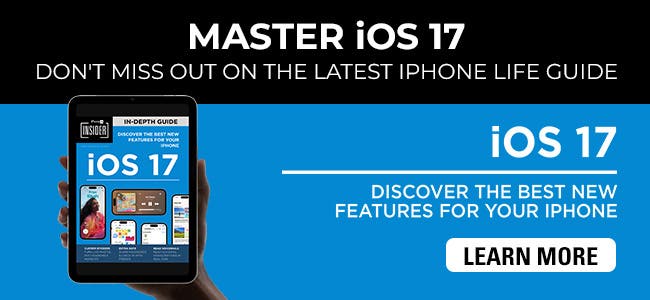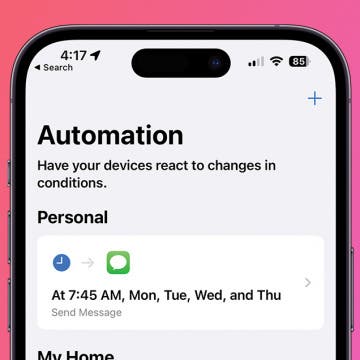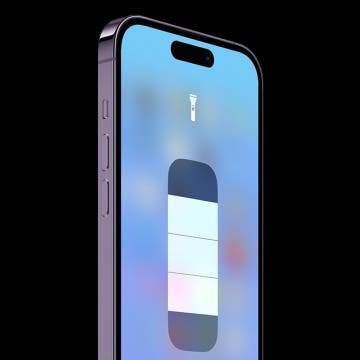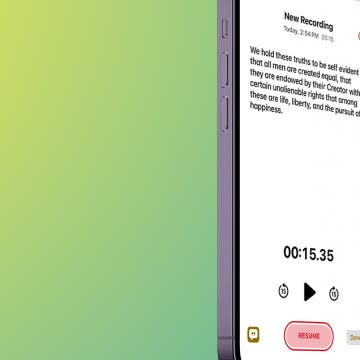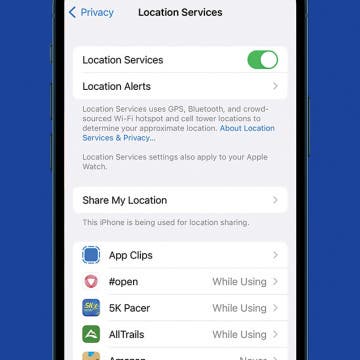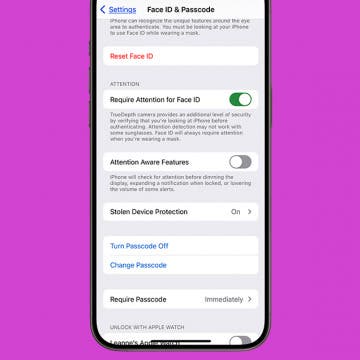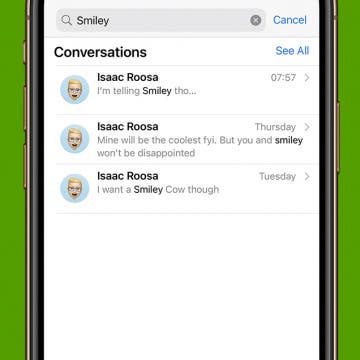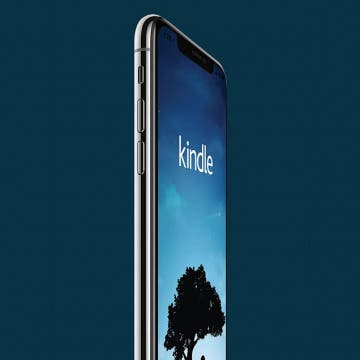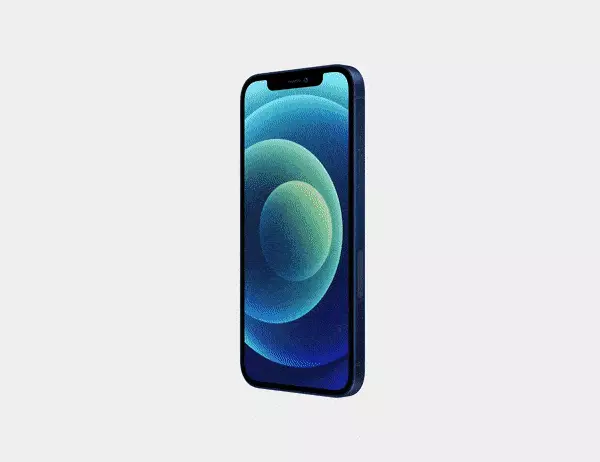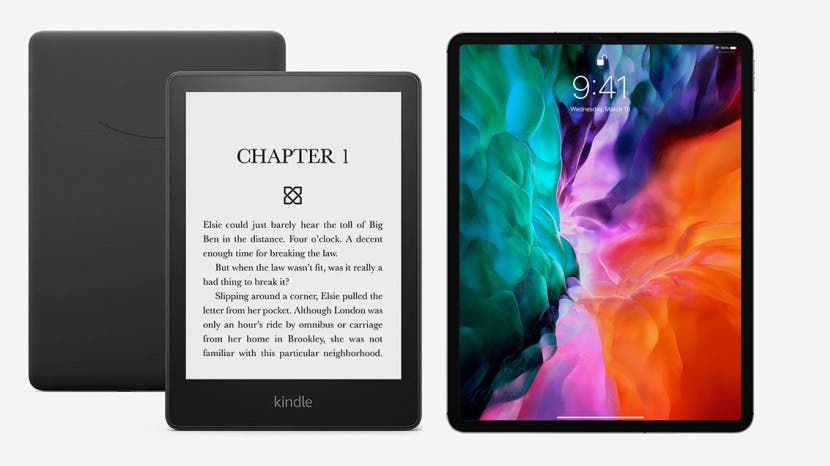
Are you stuck wondering whether you should get a Kindle or iPad for reading? The e-reader vs. tablet debates have been raging for years and everyone has an opinion. In this article, we'll go over the pros and cons of Kindle and iPad to help you find the e-reading device that's right for you.
Related: How to Buy Kindle Books on iPhone & iPad
Jump To:
The iPad for E-Reading
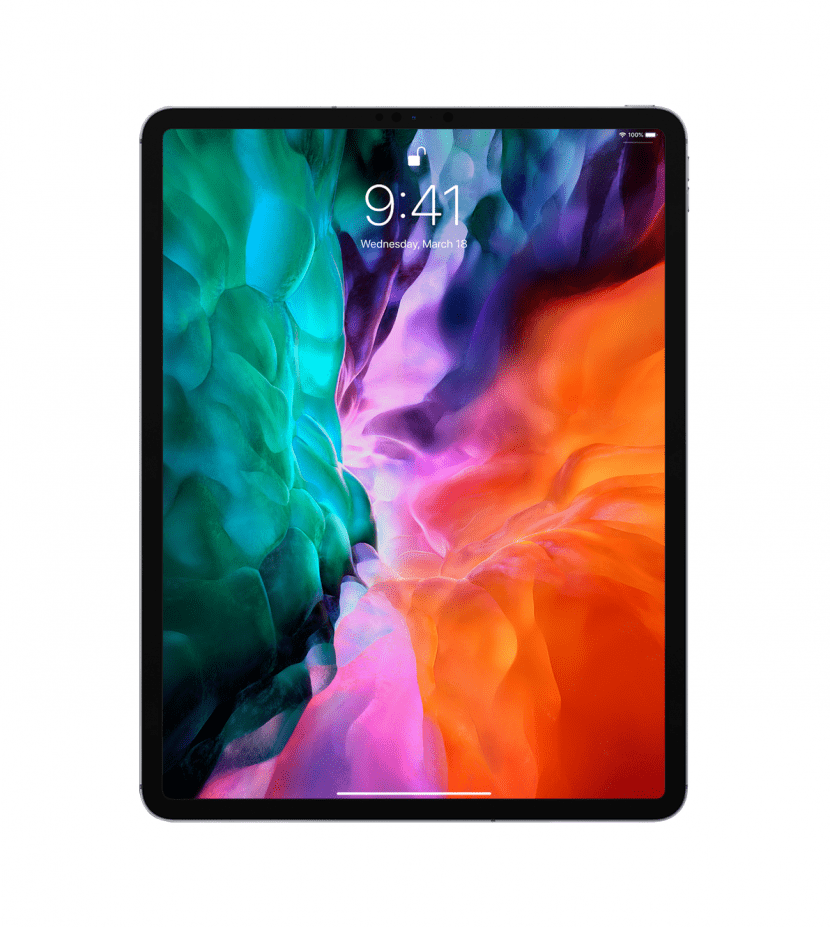
Pros
The chief pro of springing for an iPad over a Kindle is that you're not just getting an e-reader: You're getting a fully functional tablet that can run more apps than you can possibly think of. You can even add multiple different e-reading apps, including the Kindle app. One thing I particularly appreciate about reading on my iPad is that I can use apps like Hoopla to borrow library books, so I don't feel the pressure to pick out the exact right book every time that's inherent when you're spending real money on a book.

iPads, no matter the generation or model, are also full-color, which means you can get the full experience of graphic novels and picture books.
A niche benefit of choosing the iPad for e-reading is that while the Kindle lets you change font size in books, in documents like PDFs, changing the font size will have no effect. On the iPad, you can zoom in to read smaller print you can't make bigger by changing the font size. To learn more about what iPads can do, sign up for our Tip of the Day newsletter.
Cons
The biggest obstacle to committing to an iPad has to be price. If you buy a new iPad directly from Apple, the least you're going to pay is still over $300. That's more than even the top-of-the-line Kindle will run you. Of course, there's a reason for the price tag: you get a lot more functionality with an iPad. But if you want a device specifically or even primarily for e-reading, it can be hard to justify the price tag.
In fact, if you want a device just for reading e-books, the price isn't the only drawback of an iPad. Many of us read in part to escape the stresses and distractions of our daily lives, and reading on an iPad can make that challenging. Features like Focus mode can keep intrusive notifications at bay, but when all your texts and games and all the wonders of the internet are only a tap away, it can be hard to focus all your attention on reading.
Who Is the iPad Right For?
If price is no obstacle and you're looking for a device that can do e-reading and more, the iPad will serve your needs much better than the Kindle. The iPad is a multi-functional device with a full-color display and will provide you with a ton of utility.
The Kindle for E-Reading
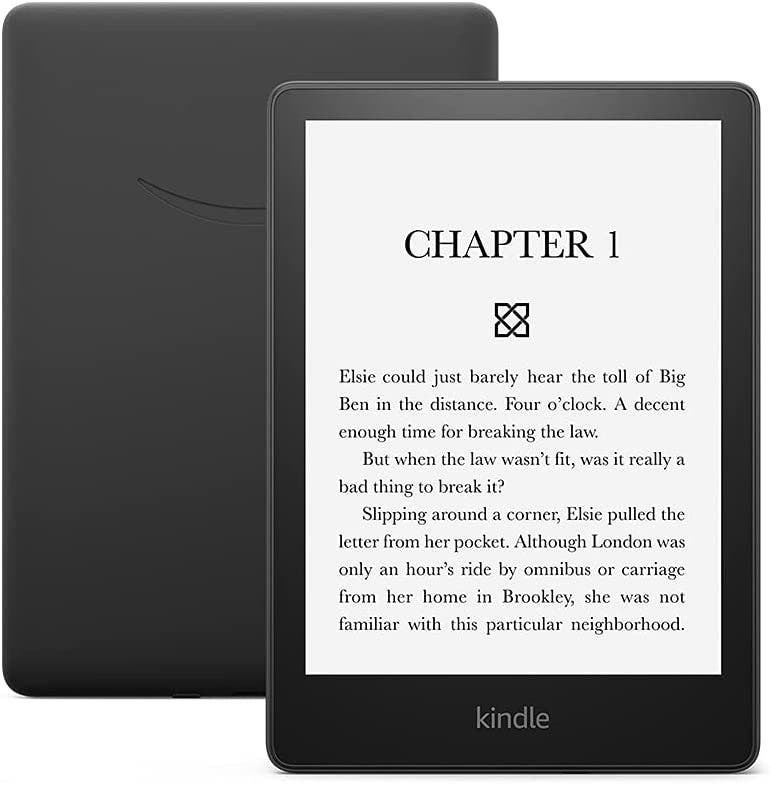
Kindle Paperwhite image from Amazon.com
Pros
The chief benefits of Kindle over iPad have to do with the Kindle being built specifically for reading e-books. If all you want to do is some digital reading, this is the device for you. You can tote your whole library around in a device that fits easily in most bags.
The iPad simply cannot beat the Kindle on price. Even the largest and most pricey version, the Kindle Oasis, is easier on the wallet than any new iPad from Apple.
The Kindle also has some potential health benefits over the iPad. The Kindle is designed to be easy on the eyes for long periods of sustained screen-gazing. The Kindle Paperwhite uses e-ink, which makes your e-reading experience more closely resemble reading from printed paper.
Another advantage of using a Kindle versus an iPad is enjoying longer battery life. My Kindle-adherent colleagues particularly like their Kindles for travel, as you can save precious battery life on your phone or tablet and depend on your Kindle to stay charged throughout long flights.
Cons
You won't run into any distractions when reading with your Kindle, but because it is built specifically for e-reading, you'll be getting a new device to maintain and keep track of for only one specific activity. If you're anything like me, who already has trouble keeping track of all the devices I already own, adding a single-purpose device to the roster may be more trouble than it's worth.
iPad screens are in full color, but Kindles screens are black and white only. While we've gone over how this can be a benefit if you're concerned about how much time you're spending staring at a screen, it's a drawback if you enjoy consuming media where color really matters, like the aforementioned graphic novels or picture books.
The most affordable Kindle options are ad-supported, which means that your Lock screen will display sponsored advertisements on it.
You can play audiobooks on Kindle, but you need an external Bluetooth speaker or headphones to do so.
Who Is the Kindle Right For?
The Kindle may be the device for you if you're looking for a more affordable, dedicated e-reader or if you're someone who gets distracted by shiny apps and notifications when you're trying to read. It is also the superior device for those who worry about the strain on their eyes caused by staring at screens for too long.

